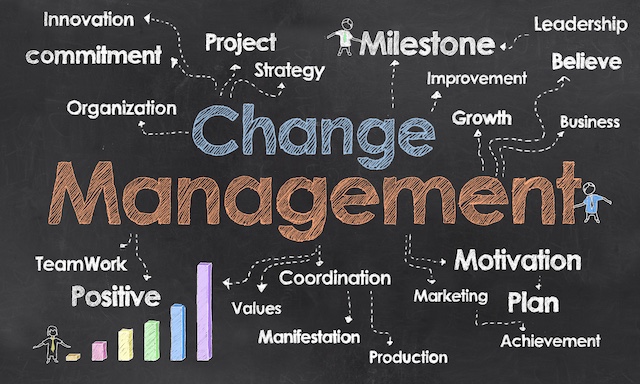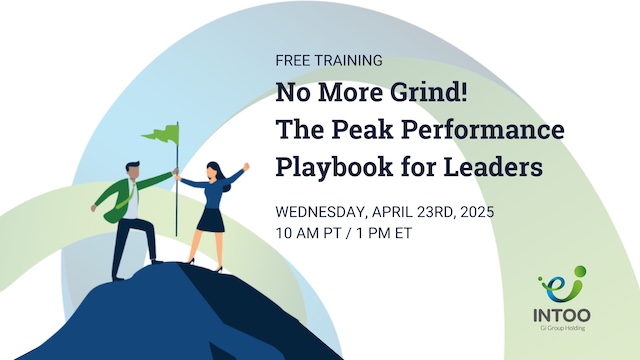Personal growth is important for all employees, regardless of industry or position. However, no job can teach people all the skills needed to become well-rounded professionals. Knowing how to actively seek out opportunities to help you grow as a leader is a valuable trait for any professional.
While you may instinctively explore professional development opportunities during or after review periods, don’t wait for those bi-annual opportunities to get started, as personal growth should be an ongoing everyday process. In this guide, we’ll introduce you to professional development goals and provide some examples you may use as inspiration, whether for yourself or your employees if you’re a business owner, as you set career objectives.
What Is a Professional Development Goal?
A professional development goal is an objective that you set to help you improve your soft skills, rather than focusing solely on career-specific traits. The goals are often used to enhance aspects of yourself that apply to any position, such as your leadership communication skills, time management abilities, and problem-solving skills.
Examples of Professional Development Goals For Employees
The professional development goals that you set for yourself should have a few key similarities. They should be specific enough so that you know exactly what you need to do to achieve them, while also being realistic and attainable. If you attach a time period to a goal, this must also be realistic.
Below, you can find six examples of professional development goals that you could use to increase your knowledge and skills.
1. Network with ten other professionals at your company’s next conference
Networking is essential when it comes to career development. Setting a networking-related goal can be especially beneficial if you wish to develop your communication skills. When you make an effort to connect with strangers during corporate events, you’ll find that you become more confident when interacting with others, particularly in a business environment. Setting an achievable number for the objective is essential to avoid becoming overwhelmed by the task at hand. Since conferences typically provide guests with opportunities to meet other professionals, they provide the perfect chance to practice social skills.
 2. Give a presentation to your colleagues during a team meeting
2. Give a presentation to your colleagues during a team meeting
Taking the initiative to lead a presentation at work can help you improve your public-speaking abilities. Office meetings are low-risk environments for enhancing your presentation skills because you’ll be interacting with fellow team members instead of potential clients. Once your presentation is finished, you can ask for constructive criticism from your peers on the elements that could use improvement. The skills learned from your meetings can be applied toward pitching services to prospects or giving seminars to colleagues.
3. Take an online course to learn new leadership skills
Take advantage of virtual programs to learn about concepts in your free time. Finding courses made by leaders you respect and wish to emulate can provide the necessary expert advice for developing your skill set. Your company may even offer online training programs that cover leadership concepts, so it can be a good idea to ask your employer about their available development programs.
4. Read a book on a trait you wish to improve
Some of the best expert advice can be found in books written by notable industry experts. Taking the time to read books on the abilities you wish to learn can significantly expand your soft skills, such as empathy, communication, and more. Check your local library or search best sellers online. If you purchase the book you can annotate and bookmark interesting ideas so that you can remind yourself of these concepts if you need a refresher.
 5. Find mentors who can guide you on conflict resolution skills
5. Find mentors who can guide you on conflict resolution skills
Leaders within your organization will likely have years of experience to pull from when offering advice to other professionals. Managers and team leaders can be excellent resources to rely on when looking for help with specific development goals. Schedule meetings to sit down and pick the brains of mentors by asking questions on specific areas you’d like to learn about. Additionally, leaders from your organization can point you in the right direction of skill-specific resources to further your development.
6. Improve prioritization abilities by working with a career coach
Learning to juggle multiple obligations is a beneficial trait that can be applied to numerous situations—both within your career and your personal life. If you’re having trouble prioritizing important projects and tasks in order to meet deadlines, you can work with your manager or a career coach to set goals and stay on task. Proactively asking questions about a project’s urgency and dependencies can also help you improve in this area.
Setting professional development goals is an important step in growing your skill set. You can try creating some attainable objectives with the tips above to start expanding your skills today. INTOO’s coaches help employees in every stage of their career develop strategies to meet their goals, while employers reap the benefits of increased engagement, productivity, and retention. Learn more about how our career development programs can benefit your company.
7. Participate in a cross-functional project to broaden your understanding of the business
Getting involved in projects that require collaboration across various departments can provide valuable insights into how different parts of the company operate. By participating in such initiatives, you not only expand your knowledge base but also enhance your teamwork and adaptability skills. Look for opportunities to contribute to projects that involve teams from different areas of the organization to gain a holistic view of the business.
8. Enroll in a course on emotional intelligence to improve interpersonal relationships
Emotional intelligence, including self-awareness, empathy, and social skills, is increasingly recognized as a critical factor in professional success. By committing to a course focused on emotional intelligence, you prioritize the development of skills essential for effective leadership and collaboration. Applying the principles learned in the course to your interactions with colleagues and clients fosters stronger relationships and enhances your overall effectiveness in the workplace.
9. Volunteer for a leadership role in a professional organization or community group
Taking on a leadership role outside your regular job responsibilities can provide valuable opportunities for growth and development. Whether serving as a committee chair for a professional association or leading a community service project, volunteering for leadership positions allows you to hone your leadership skills, build your network, and make a positive impact beyond the workplace. Look for opportunities that align with your interests and values to maximize the benefits of your volunteer experience.
10. Take a language course to improve communication skills in a multicultural workplace
Effective communication across cultures is essential for success in today’s globalized business environment. By learning a new language or improving your proficiency in a second language, you can enhance your ability to collaborate with colleagues and clients from diverse backgrounds. Look for language courses that focus on practical communication skills and provide opportunities for interactive learning, such as conversational practice and role-playing exercises.
11. Seek feedback from peers and supervisors on areas for improvement
Feedback is a valuable tool for professional development, as it helps identify areas where you can grow and improve. Actively seek feedback from your peers and supervisors on your performance, communication style, and areas for development. Use constructive feedback as an opportunity to set specific goals for improvement. Regular feedback sessions can help you track your progress and adjust as needed to achieve your professional development objectives.
12. Contribute to the company blog or newsletter by writing articles on industry trends
Writing for the company blog or newsletter offers a prime opportunity to exhibit expertise about industry trends and solidify a position as a thought leader in the field. This engagement not only enhances research and writing abilities but also holds the potential to elevate the company’s online visibility. By sharing insights and analysis on current trends, you demonstrate your value and contribute to the organization’s reputation as an authority in the industry. Such contributions foster professional growth, establish credibility, and bolster the company’s digital footprint.
Why Should Employees Set Professional Development Goals?
Investing in professional development goals isn’t just good for the employer; it’s a strategy for employees’ personal and professional growth. It propels your career forward by equipping you with the skills and knowledge desired for advancement so that you can confidently take on new challenges or apply for that promotion.
Setting goals also fosters a growth mindset. Instead of feeling stuck, you embrace ongoing learning and view challenges as improvement opportunities. This attitude translates into a more resilient and adaptable approach to work, reducing stress and boosting overall satisfaction.
The benefits extend beyond the office. The skills you hone can be applied in other areas of your life, making you a more effective communicator, problem-solver, and leader.
Setting professional development goals is an important step in growing your skill set. You can try creating some attainable objectives using the examples and tips above. Ultimately, setting professional development goals empowers you to take control of your career trajectory and cultivate a sense of fulfillment that spills over into all aspects of your life.
INTOO’s coaches help employees in every stage of their career develop strategies to meet their goals, while employers reap the benefits of increased engagement, productivity, and retention. Learn more about how our career development programs can benefit your company.


 2. Give a presentation to your colleagues during a team meeting
2. Give a presentation to your colleagues during a team meeting 5. Find mentors who can guide you on conflict resolution skills
5. Find mentors who can guide you on conflict resolution skills








